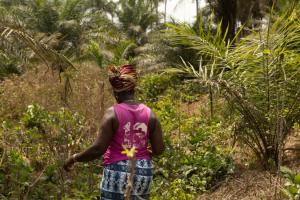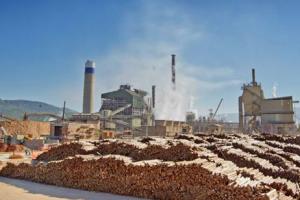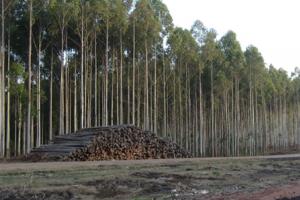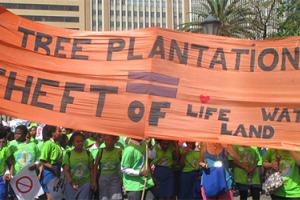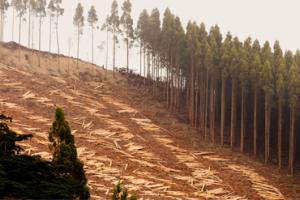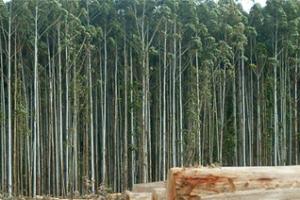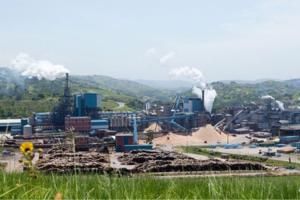Timber
Large-scale, intensively-managed and even-aged tree monocultures for timber production have been expanding onto communities’ fertile lands. They have destroyed forests and grasslands, especially in Latin America, Asia, and East and Southern Africa. The species used are exotic and fast-growing. They include varieties of eucalyptus, pine and teak trees.
Several of Sappi’s plantations have been converted from pine to eucalyptus trees without authorization. Data obtained in over 75 years to verify timber plantations’ water use demonstrate that eucalyptus trees use 30 to 50% more water than pine trees.
As a condition to install its second pulp mill, the company UPM demanded that the Uruguayan state build a new railroad from the site where UPM plans to locate its mill to the port. The government would cover the costs of these infrastructure projects at the service of UPM.
In 2017, the Finnish company UPM signed a contract with the Uruguayan government to establish a third mega pulp mill. The project is subject to exorbitant conditions imposed by the multinational.
This article gives an overview on the industrial tree plantation expansion threat in eastern and southern African countries, its external drivers, as well as the challenges this expansion presents to affected communities struggling to defend their land and livelihoods.
